What was the problem you were trying to solve when you launched F-LEX?
When I was doing my degree, I had no legal work experience and found the chicken and egg scenario really frustrating. People would say “You need at least 6 months’ experience before we can consider your application”.
When I qualified as a lawyer I then saw it from the other side. My firm was next to a law school and I would see students outside my window and think “They’re right there and I need help now! Why is nobody using technology to connect us?!”
I decided to do just that, and F-LEX was born.
The Legal Market is famously difficult to break into, yet you’ve brought on nearly 600 customers in just four years. How do you generate most of your opportunities?
We have a lot of clients who are in house legal teams as well as law firms. We found this an easier market initially as you typically just need sign off from one person rather than a team of partners. But yes, we have been pleased with the rate at which we’ve been able to acquire new business. We get a number of enquiries via the website but the majority of our opportunities come about as a result of outreach via LinkedIn and then follow up email activity.
There is no shortage of companies out there using LinkedIn and email as a route to new customers, but few achieve this kind of success. What are some of your secrets to selling this kind of complex solution?
1) Do your Homework
I’d never done sales before starting F-LEX, but I now realise just how much of it comes down to hard work and perseverance. I love the hunting process – finding companies that you know you can help and then identifying the key decision maker.
“You need to demonstrate you’ve invested time in the prospect as an individual”
Before making contact I’ll conduct extensive research into that person. What are the common connections? Did we go to the same university? Do we have friends in common? If I can’t find any connections, I’ll look for other interesting things they have going on in their professional lives. Perhaps they’ve won an award or shared some great content..? The point is you need to demonstrate you’ve invested time in the prospect as an individual, and that they’re not just one of a hundred people being spammed with the same message.
I think some sales people believe that their unique charm can be a substitute for hard work, but success doesn’t come with shortcuts. I’m often reminded of what the founders of Ben and Jerry’s say in their book, The Inside Scoop, that Business is essentially just “busyness”; mostly common sense and hard work!
2) Make it about them, not you
Like any company, we love to talk about what we do and how we do it, but if we’re to capture people’s attention then we need to begin on their terms. We need to talk about their pains and challenges, and do so in a language they understand.
“Our entire sales team is made up of ex-lawyers”
This is why it’s so important to know the customers’ world. Being able to relate is the basis of any relationship, and the fact that I was a lawyer before starting F-LEX means I can empathise with their challenges. In fact, our entire sales team is made up ex-lawyers.
Our legal background also gives us a level of credibility. Some lawyers have a tendency to assume their world is so complex that innovations that may work in other markets, couldn’t be applied to their own. As ex lawyers ourselves, we can dispel some of these myths. Right from the first message, we’ll demonstrate this sector expertise by saying things like “We know Subject Access Requests are an absolute nightmare following GDPR, and this is how we’ve helped other companies, just like yours, take away that pain…”

3) Be Fast
If you’re going to work hard to create opportunities then when they emerge you’ve got to move quickly. After all, as lawyers it’s safe to assume they’ll be diligently researching the market and contacting multiple potential suppliers, so if you’re not having that conversation then someone else will be!
This emphasis on speed can’t be a mere sales tactic, however, or your retention is going to suffer once customers are on board. One of our values is “Responsiveness” and this principle drives all of our communication.
4) Be honest and human
There is a temptation in sales to be all things to all people, but that’s the fastest path to mediocrity. It may be counterintuitive but I believe that being honest about your limitations and showing a bit of vulnerability is actually really powerful. Tell people when you don’t know an answer. Tell them when your solution isn’t the one they need. And if you make a mistake, own it.
This kind of disarming honesty makes you more human and easier to connect with. It also means that when you do say you have the answer, people will listen.
5) Be positive
There’s no shortage of negativity in the world, particularly on social media, so don’t add to it. We all have tough days and for some reason when you’re in sales, people will think it’s okay to be rude to you. If you can’t handle that and are going to take it out on others, you probably need to find another profession.
6) Learn to tell stories
Stories are far more powerful than facts alone, so when explaining case studies you’ve got to bring them to life. Explain who the person was, the pain they were going through, and how your solution took that pain away.
“This love of story telling has been a real asset for me within the sales environment”
Stories fascinate me. I actually leave postcards around London that ask those who find them to write something positive and send it back, using the pencil and stamp attached. That could be the best thing that had happened to them that day, a positive bit of wisdom or even a short love story. Believe it or not, we get two thirds of these postcards back, and some of the things people say are incredibly moving.
That may be unrelated to our business, but I think this love of story telling has been a real asset for me within the sales environment.
7) Don’t burn through your audience
The legal market is not a numbers game. There’s a finite volume of prospects and they all talk, so trying to hit as many possible as quickly as possible is likely to do a lot more harm than good. Treat them as individuals and build real relationships.
8) Use your data
As a tech start-up, one of our big advantages is the accuracy and accessibility of our data. Most companies, particularly in the legal market, have decades of heavily disorganised and inconsistent customer details, so our data integrity represents a huge advantage that we know we have to leverage, both from an operational and marketing perspective.
9) Become an influencer
While we have a strong sales process, there’s no question that this has all been made a lot easier by the way we’ve developed our reputation. We rode the law tech wave when we first began, speaking at events and writing relevant articles, and now we’re riding the flex-tech wave.
Associating your brand with these trends, both at an organisational and personal level, makes the lead generation and sales process so much easier.
10) Be careful how you incentivise
In recruitment there’s a tendency to incentivise via individual commission. The danger is that you’re going to encourage behaviours that prioritise short term commercials over the experience of the customer or candidate.
Instead our reward system is based on the performance of the team and the experience of customers and candidates. We believe that if we incentivise the right behaviours, commercial success will follow.
11) Qualify, Qualify, Qualify
This is rarely a fast sales process. Sometimes we might have to attend up to 15 meetings before we secure the deal. If you’re going to commit that much time, you need to be sure that it’s for the right kind of business.
Investing a bit more time upfront to qualify opportunities will save you a tonne of energy in the long term.
12) Know that the first few sales will be tough, but it will get easier
This is true in any market, but particularly legal where decision makers are often risk averse.
Nobody wants to be a guinea pig, so securing those first few deals can be a real challenge. We actually offered our service without charge in the early days, with all revenue going straight to the paralegals, while we refined our models and established some credibility. Over time, the process became much easier and the upside of a market like this is that customers will tend to be quite loyal.
If you try to break into a slow and cautious market like legal and expect big results overnight, you’re going to be disappointed. You’ve got to commit for the long term.
13) Don’t worry about sounding technical
This may sound counterintuitive for someone representing a technology company, but I believe the fact that I’m not technical is actually an asset within the sales environment, as it means I’m more likely to talk in a language that our prospects understand.
“The prospect has to believe that we understand their world.”
This is a shame in some respects. My co-founder, for example, is the smartest guy you’ll ever meet and people should pay particular attention to his point of view, but there is a tendency to assume that technical people are disconnected from the practical applications of their work. That’s often a mistake but it reiterates the point about why we hire ex-lawyers. The prospect has to believe that we understand their world.




